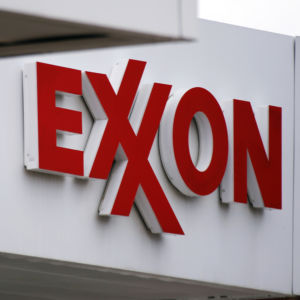Stung by controversy and mounting questions about their tactics, climate activists who have been behind a broad-based campaign against ExxonMobil are descending on Dallas Wednesday to press ahead with their attacks, choosing the company’s annual shareholder meeting as the stage for their latest stand.
If the past is any measure, the groups — including 350.org, Greenpeace and others — will stage loud and unruly protests meant to draw police and media attention, in what has become a routine part of the environmental activist playbook.
In the meantime, the shareholder meeting will mark a milestone in company’s history: the first time a faction of the Rockefeller family has not been at the shareholder table helping shape the direction of the energy behemoth that began as John D. Rockefeller’s Standard Oil. The absent members, by and large, represent a renegade faction of the family that has been highly critical of the fossil fuel industry, chiefly ExxonMobil.
This faction has also provided tens of millions of dollars to a variety of foundations and grassroots organizations whose mission is to undermine the company — including those that will be on hand in Dallas for the protests.
The length to which these disgruntled family members and their allies have been willing to go was disclosed in news reports several weeks ago detailing a secret meeting held at the Rockefeller Family Fund where, according to a leaked agenda, the groups have set out with the goal of “creating scandal” in order to “delegitimize [ExxonMobil] as a political actor,” “force officials to disassociate themselves from Exxon,” and “drive divestment from Exxon.”
The Rockefellers, through their foundations, have also invested millions of dollars in news outlets that have helped advance the claims of environmental activists that the company had been behind a campaign to deceive the public on the dangers of climate change – though the company’s position is that climate change is a threat that must be confronted by its scientists and the larger scientific community.
The family itself is divided over ExxonMobil. The faction critical of the company has waged its war through two family foundations, the Rockefeller Family Foundation and the Rockefeller Brothers Fund, both of which have divested money from the company. But the Rockefeller Foundation, whose endowment is more than $4 billion, continues to oppose divestment, clear evidence of the rift within the family.
The shareholder meeting was presumably meant to be a demonstration of strength by the groups. But it comes after a series of missteps by environmentalists and their allies that have mobilized defenders of free speech advocates, free-market advocates and members of Congress, to name a few.
After initially dominating the public debate, the climate activists and their wealthy funders have found themselves on the defensive amid disclosures that have raised questions about their aims and tactics.
Indeed, the meeting at the Rockefeller Family Foundation – which included trial lawyers and leaders of a political party — suggested to the company’s allies that the campaign had gone from environmental advocacy to a darker area of “collusion” against the company.
The criticism has grown louder since the attorney general of the Virgin Islands filed a suit against the company for climate fraud conspiracy and subpoenaed independent groups for any documents they had relating to research or position statements on climate policy. The move spurred a backlash among First Amendment advocates on the political left and right who argued that the subpoena request was an abuse of state power designed merely to silence anyone whose views climate activists deem unacceptable.
The backlash against the efforts of the environmentalists and their allies culminated last week when the House Science Committee requested documents — including communications — from 17 Democratic state attorneys general and a number of environmental groups to determine if they are inappropriately conspiring against the company.
Inside the shareholder meeting, the focus will also be on climate as a range of resolutions urge the company to plan for a changing political environment. One measure even resolves to have the company stop investing in oil and gas while increasing dividends. Shareholders are expected to vote down the proposal.

